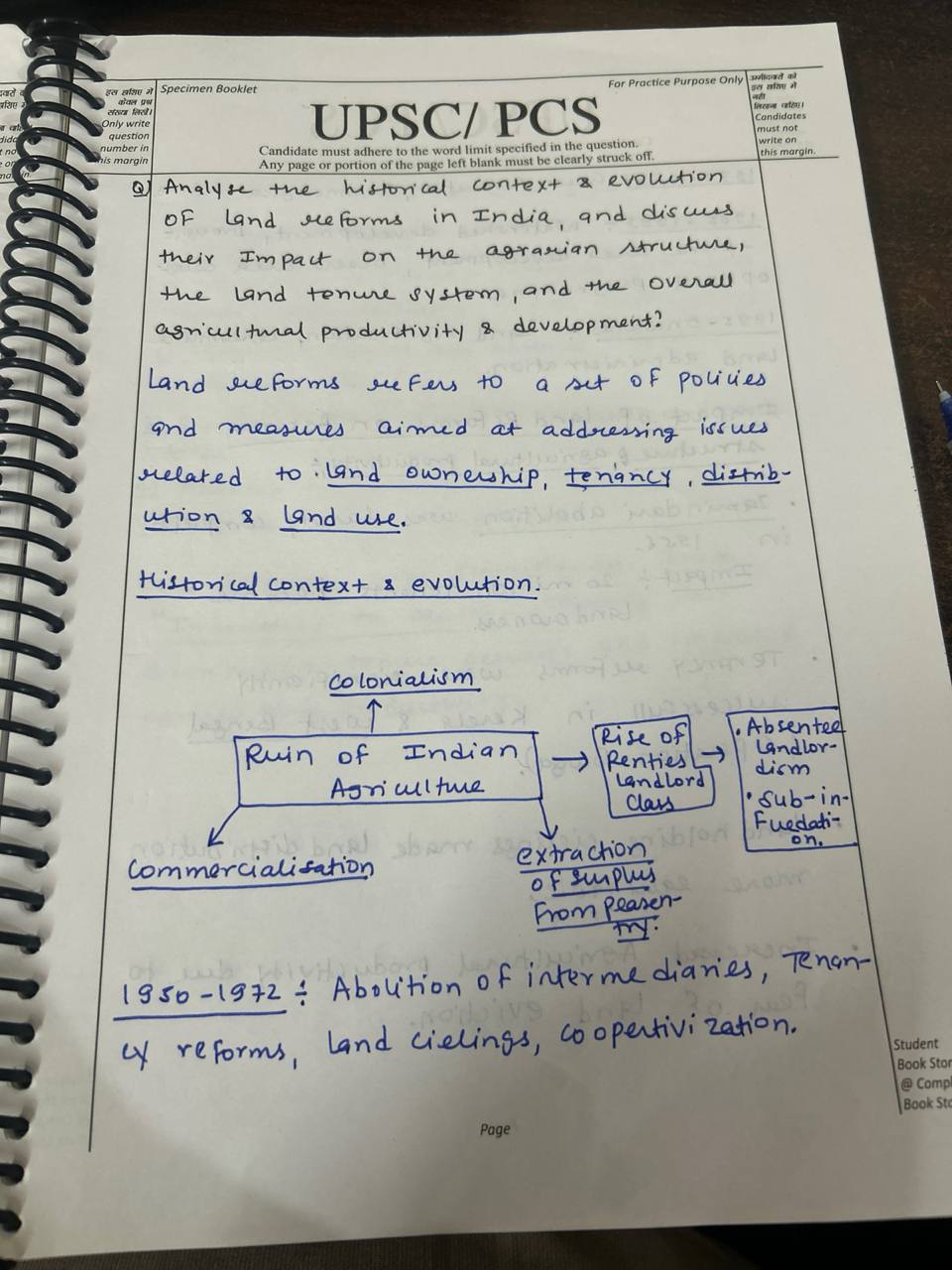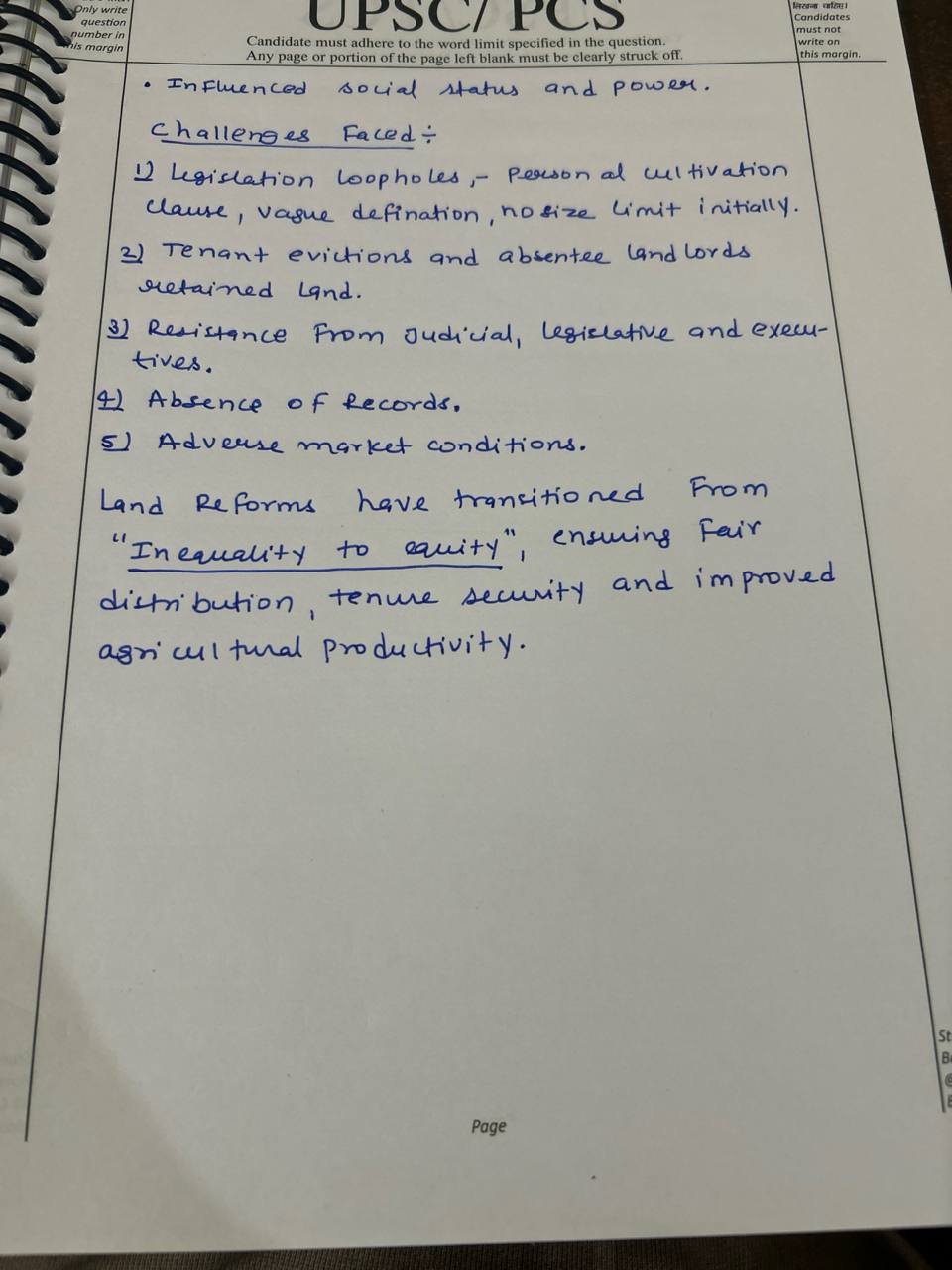Roadmap for Answer Writing Introduction Define land reforms and their role in promoting equitable development. Briefly mention the importance of land reforms in addressing rural poverty and inequality in India. Key Points to Cover in the Answer: Historical Background of Land Reforms in India Land reforms ...
Reasons for the Rise of the Roman Empire: 1. Military Conquests: Successful military campaigns expanded territory and influence, securing resources and wealth. 2. Strategic Alliances: Diplomatic alliances with neighboring states and tribes bolstered Rome's power and stability. 3. Administrative EffiRead more
Reasons for the Rise of the Roman Empire:
1. Military Conquests: Successful military campaigns expanded territory and influence, securing resources and wealth.
2. Strategic Alliances: Diplomatic alliances with neighboring states and tribes bolstered Rome’s power and stability.
3. Administrative Efficiency: Effective governance and legal reforms facilitated centralized control and integration of conquered regions.
4. Economic Prosperity: Trade, agriculture, and taxation generated significant wealth, supporting infrastructure and public projects.
5. Cultural Integration: Assimilation of diverse cultures and practices strengthened societal cohesion and loyalty.
Reasons for the Fall of the Roman Empire:
1. Political Corruption: Ineffective leadership and corruption weakened governance and administration.
2. Economic Decline: Heavy taxation, inflation, and economic mismanagement eroded financial stability.
3. Military Overreach: Overexpansion led to logistical challenges and vulnerability to external invasions.
4. Barbarian Invasions: Continuous invasions by barbarian tribes destabilized the Empire’s borders.
5. Internal Conflict: Civil wars and power struggles undermined unity and cohesion.




Model Answer Introduction Land reforms in India were designed to address feudal landlordism, ensure landownership for tenants, and increase agricultural productivity. However, the lack of effective and equitable implementation of these reforms has contributed to the persistence of poverty in the couRead more
Model Answer
Introduction
Land reforms in India were designed to address feudal landlordism, ensure landownership for tenants, and increase agricultural productivity. However, the lack of effective and equitable implementation of these reforms has contributed to the persistence of poverty in the country. Below are the key ways in which ineffective land reforms have exacerbated poverty:
1. Land Inequality
The failure of land reforms, such as the land ceiling act, and issues like benami transactions have resulted in a concentration of land ownership. As of 2020, the top 10% of landowners in India hold 45% of the farmland (Global Land Inequality Report, 2020). This unequal distribution restricts access to land for marginalized communities, limiting their ability to generate income and perpetuating poverty.
2. Exploitative Conditions for Tenant Farmers
A significant portion of India’s rural population works as tenant farmers or sharecroppers under exploitative conditions. In Punjab, for example, one-third of farmers are involved in farming leased land, often paying high rents to landlords, leaving them with little surplus. This cycle of exploitation contributes to sustained poverty among these farmers.
3. Fragmentation of Landholdings
Due to the failure of land reforms, landholdings in India are highly fragmented. Approximately 70% of agricultural households hold less than one hectare of land (National Statistical Office, 2021). This fragmentation makes it difficult for farmers to adopt modern agricultural practices, lowering productivity and income.
4. Limited Access to Formal Credit
The absence of proper land records and conflicting land claims prevent many farmers from accessing formal credit. A Reserve Bank of India report highlights that only 40% of small and marginal farmers are covered by formal credit. This forces farmers to rely on informal lenders who charge high interest rates, further entrenching poverty.
5. Legal Complexity and Conflicting Laws
Land being a state subject has resulted in varying state laws, creating legal complexity and prolonged litigation. This hampers equitable land distribution and reduces rural investment, further aggravating poverty in vulnerable communities.
Conclusion
Addressing these issues through comprehensive land reforms is crucial to reducing poverty and promoting sustainable development in India.
See less